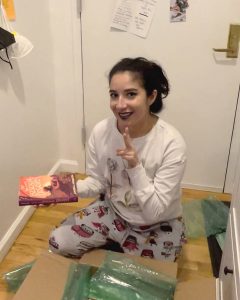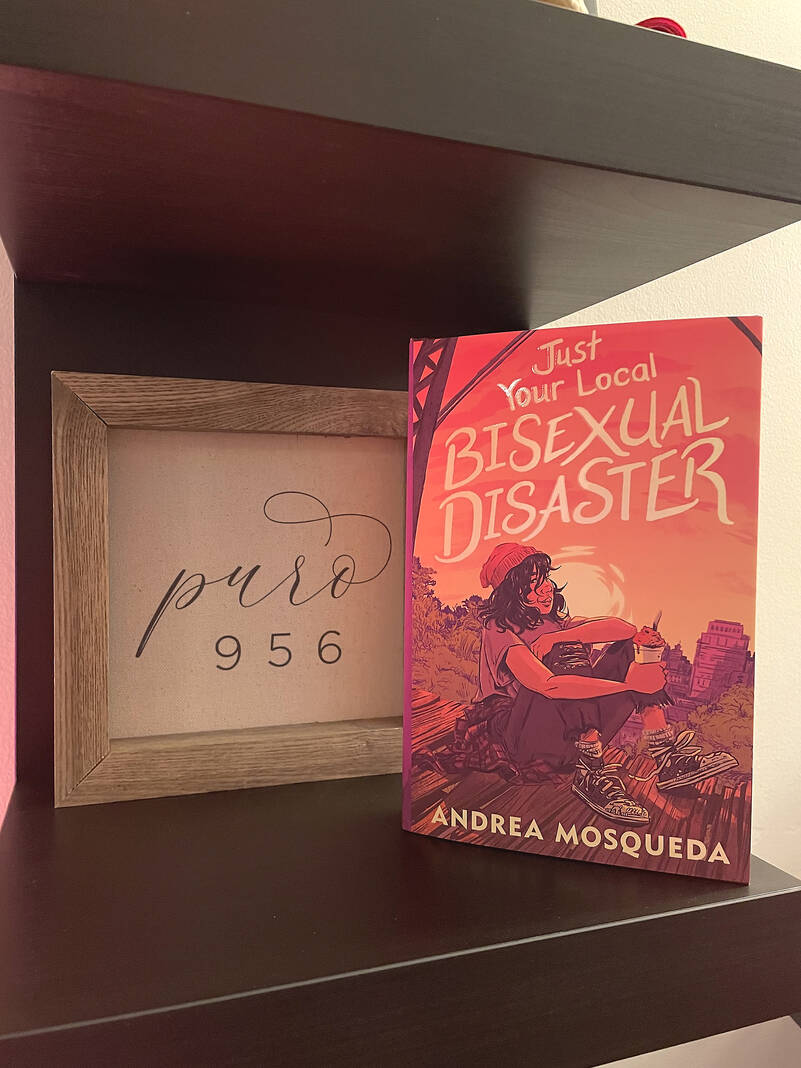
The road for Andrea Mosqueda has taken her from the hallways of San Benito High School, to the lecture halls of Yale University, and now to the bustling streets of New York City.
While her journey has taken her across the country, it is the publication of her first novel, “Just Your Local Bisexual Disaster,” that is helping her find her way back home to the Rio Grande Valley.
“The journey all the way up until now, I have so many feelings about it,” Mosqueda said in a phone interview from her apartment in Brooklyn. “I hate those people who always talk s—- about the Valley when they leave — just being like, ‘The Valley is so terrible and I’m glad that I left,’ or people being like, ‘I just want to leave the Valley.’ I was one of those (people) like that when I was kind of a snotty teen. I really didn’t appreciate where I was from.”
It was her love for the Valley that inspired her to write “Just Your Local Bisexual Disaster.” Having just graduated in the fall of 2017 with a degree in English literature with a concentration in creative writing, Mosqueda began writing her book in June 2018.
Mosqueda’s book tells the story of a 17-year-old Chicana, bisexual girl named Maggie who’s a junior in high school. Set in San Benito, the story depicts life in the Rio Grande Valley through the eyes of the young protagonist as she is confronted with her feelings for three of her friends.
“Her little sister is having a quinceañera, so she needs to pick an escort,” Mosqueda explained. “She is ultimately not sure who she wants to bring until she realizes that she has feelings for three of her friends. She doesn’t quite know what those feelings are, but she knows that she wants to ask one of them. She just doesn’t know who or how. It’s about her working through this decision on like what her feelings specifically are for these friends and how she wants to move forward.”
And it’s rich in Valley culture.
“There are crazy hijinks, there are raspas, there’s Whataburger, and there’s a quinceañera,” Mosqueda said.
“Just Your Local Bisexual Disaster,” which hits shelves May 24, was Mosqueda’s way of confronting her past as a young queer Chicana girl growing up in the Rio Grande Valley, she said. She described the process of writing her first novel as a therapeutic experience.
“I would get home from work, and I would just write,” Mosqueda recalled, describing her strict four to five hour writing schedule every evening. “I had just started my job at Macmillan (Children’s Publishing Group), so I think that’s really what made me want to write that book — write this very slice-of-life, kind of fun, kind of light, kind of rom-com kind of a book.
“So much of my adult life started with this feeling of you pay bills, I’d just gotten my first paycheck from my adult job and it’s so little, and I had leftovers from like five days ago,” she continued. “I was just being sad and being like I can’t even feel nostalgic for childhood because being a closeted queer kid was also really hard. I was like, ‘I’m going to redo life as a bisexual, Chicana kind of just chilling in the Valley.’ I had been living away from home for a while, and by that point I was really just missing it. I just really wanted to go back, so I did.”
Mosqueda said she hopes her book will offer some hope and comfort to other queer teens in the Rio Grande Valley, a demographic that she said inspires her.
“To tell their story, I think that’s especially why I wrote the book and why it’s important for me to set it in the Valley,” Mosqueda said. “I want them to see that their stories can end joyfully. A lot of times you see queer media that ends very sadly because it’s supposed to teach a lesson about how queerness is sad and how it inevitably ends like that.
“My book has a happy ending, and it’s completely very light,” she continued. “Obviously there are touches of trauma because being from the border leads to its own intergenerational problems. Ultimately, there is a happy ending and it is hopeful. I want other queer kids in the Valley to know that their stories will end happily. It will end happily, that’s what I want them to know.”





